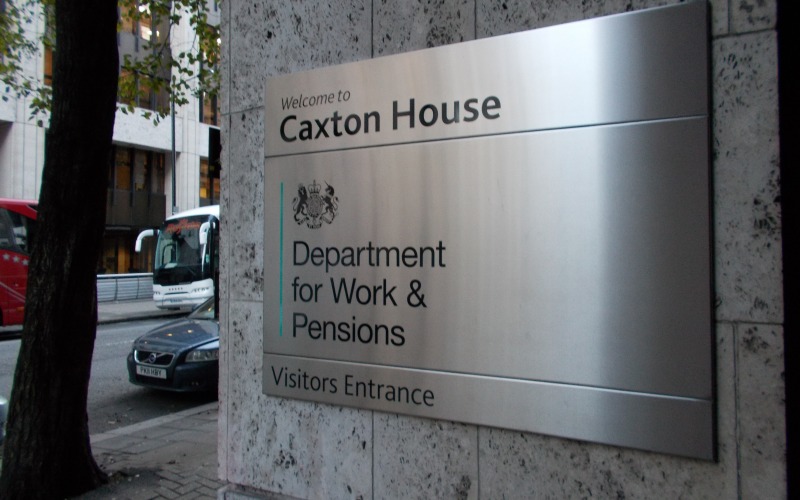A disabled employee of the Department for Work and Pensions (DWP) says he attempted to take his own life and experienced life-threatening physical health complications because of a culture of workplace bullying and discrimination.
Paul* spoke out about his own experiences after reading a Disability News Service (DNS) report describing how DWP repeatedly failed to make reasonable adjustments for disabled people who were recruited into its Community Partners scheme.
His account of his own experiences working in a separate part of DWP adds to mounting evidence of disability discrimination within the department.
Only last week, DNS reported how the proportion of DWP staff who say they have been victims of disability discrimination at work in the previous 12 months has risen by about 50 per cent in just four years, according to Civil Service figures.
There was also a rise of more than 10 per cent in just 12 months in the number of DWP staff saying they had personally experienced disability discrimination at work, from 1,462 in 2017 to 1,612 in 2018.
These statistics, combined with other Civil Service figures, suggest that more than a third of disabled DWP staff experienced disability discrimination at work in 2018.
The latest evidence of discrimination within the government department responsible for the much-criticised Disability Confident programme also further strains the scheme’s credibility.
DWP itself has secured the status of Disability Confident Leader, the highest of three levels within the scheme, which aims to work with employers to “challenge attitudes towards disability” and “ensure that disabled people have the opportunities to fulfil their potential and realise their aspirations”.
Paul attempted suicide as a result of the abuse and discrimination he experienced, while the increased stress levels led to significant, lasting and potentially fatal health complications.
He said he was still waiting for all the reasonable adjustments he needed to do his job, more than 18 months after he requested them.
He said he had received phone calls from fellow disabled employees who were in tears because of the failure of the department to make the reasonable adjustments they needed to do their job.
Paul said that when he and others pass on concerns about the impact of bullying and harassment on their mental health, they are told to take anti-depressants or seek counselling, while the staff and managers responsible are moved to other departments or rewarded with promotions.
His experiences with DWP have had, he said, “a devastating effect on my career prospects, a devastating effect on my potential earnings, and a devastating effect on my potential life expectancy and ability to live on my own”.
He added: “In fact, this has had a devastating effect on my life.”
DWP’s widespread failings call into question its fitness to judge disabled people’s eligibility for benefits, he added.
A DWP spokesperson said: “We are absolutely committed to ensuring all colleagues, including those with disabilities or health conditions, get the support they need to thrive.
“The department has a duty of care to its colleagues and aims to lead by example as a Disability Confident employer, following best practice in recruiting, retaining and developing disabled staff.
“This includes making workplace adjustments for staff who require them and providing a dedicated team to deliver this.
“We have in place robust processes for colleagues and managers to follow in relation to diversity and inclusion and, while the number of staff reporting disability discrimination is very small, we treat any case extremely seriously.”
She said DWP takes “active steps” to promote equality, and that more than 10,500 employers have signed up to Disability Confident, while the department was modernising its recruitment practices to make them “fairer and more inclusive”.
She added: “Should any individual feel they or their circumstances have not been treated with respect; believe they have been treated unfairly; or not in line with our inclusive principles, our policies and procedures provide a route for escalation so it can be considered and addressed.”
*Not his real name. DNS has disguised his occupation within DWP and has not provided full details of the health problems caused by the discrimination he has experienced to avoid identifying him
Samaritans can be contacted free, 24 hours a day, 365 days a year, by calling 116 123 or emailing [email protected]
A note from the editor:
Please consider making a voluntary financial contribution to support the work of DNS and allow it to continue producing independent, carefully-researched news stories that focus on the lives and rights of disabled people and their user-led organisations.
Please do not contribute if you cannot afford to do so, and please note that DNS is not a charity. It is run and owned by disabled journalist John Pring and has been from its launch in April 2009.
Thank you for anything you can do to support the work of DNS…

 Stride refuses to apologise for two untruths in TV interview on PIP cuts
Stride refuses to apologise for two untruths in TV interview on PIP cuts PIP claimants ask government: ‘Why should we have to fight to live?’
PIP claimants ask government: ‘Why should we have to fight to live?’ DWP claims it has no written evidence to show why it weakened suicide probe guidance
DWP claims it has no written evidence to show why it weakened suicide probe guidance